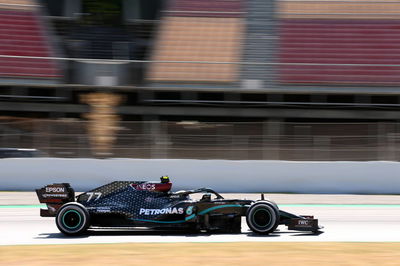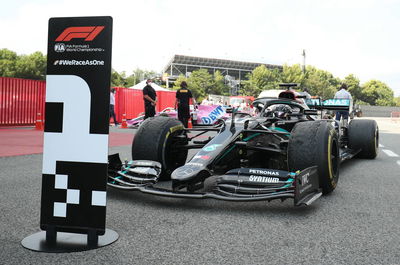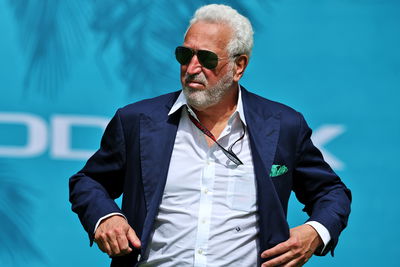Why Mercedes isn’t concerned by ban on F1 ‘quali modes’
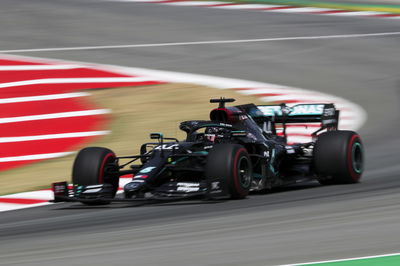
Mercedes believes the upcoming clampdown on using engine ‘qualifying modes’ in Formula 1 could actually help it become more competitive.
New measures to prevent teams from using high-performance engine settings during key moments in qualifying are expected to be implemented by the FIA to require all teams to use the same modes in qualifying and the race.
The new restrictions were originally meant to be enforced from next week’s Belgian Grand Prix via a technical directive, however, the change is understood to have been delayed by one race until the following round at the Italian Grand Prix at Monza on 6 September.
Mercedes has dominated the current era of turbo-hybrid engines that began in 2014 by winning every title on offer, and the German manufacturer was the first team to pioneer and introduce such settings for qualifying, dubbed a ‘party mode’ by Lewis Hamilton.
The aggressive nature of the ‘quali modes’ to extract maximum performance from the engine heavily drains power unit resources and battery, meaning the settings are only deployed over a few laps in qualifying for optimum performance as they are unsuitable for a full race-distance due to placing greater demand on reliability.
The ban is set to rein in the Mercedes-powered teams that traditionally make the biggest performance gains in qualifying, with some suggestions the changes could have major implications on the picture of this year’s world championship outcome.
Mercedes has dominated the start of the delayed 2020 season and opened up a comfortable buffer in both world championships, having won five of the opening six rounds of the campaign so far.
But Mercedes F1 boss Toto Wolff has downplayed the impact of the looming restrictions and suggested the move may actually end up favouring his team rather than disadvantaging it.
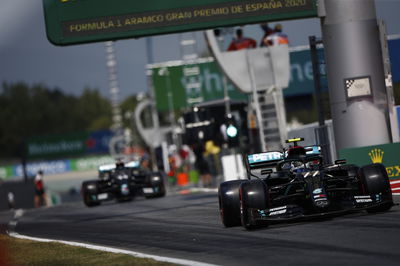
"I think we don't lack performance on Saturdays," Wolff said. "We had until now quite a margin.
"We struggled in some of the races where we were quite limited in powerful engine modes, and if Formula 1 were to ban in-season, certain power unit modes, then I think it will actually help us in the race.
"If you can avoid to damage your power unit in those few qualifying laps that you have available, in Q3 and then the odd lap in the race, the damage metrics goes down dramatically.
“So five laps of quali mode not being done gives us 25 laps of more performance in the race, and that is something we believe will give us more performance.
"You must take into effect even if it may hurt us more in qualifying, which I'm not sure, and it's a couple of tenths, then it will hurt all the others in the same way.
“But for us, we are always very marginal on what we can extract from the power unit, and if we were to be limited in qualifying modes, then well, we will be stronger in the race.”
Mercedes has taken every single pole position on offer so far this season and has locked out the front-row of the grid at five of the first six races, holding a comfortable advantage over its rivals in qualifying.
Despite claiming the ban is “obviously to slow us down”, Hamilton insisted he had no concerns that the changes would end up cutting Mercedes’ current advantage.
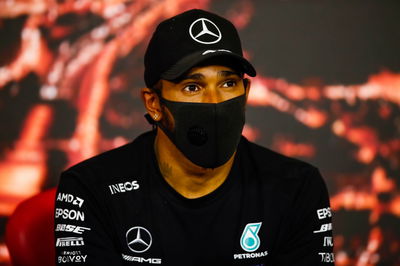
“I understand in one respect that they want to see closer racing,” the six-times world champion explained.
“But it’ll be interesting to see what they do moving forwards. Regardless of what they do, we are the best team and we’re going to handle whatever it is as the professionals we are. We’ll just continue to do a better job.
“Whatever they change, whatever they throw at us we’re going to catch it, assess it and then deliver to the highest standard. So there is no concern for me.”
Teammate Valtteri Bottas, added: “We are not panicking about it. If the regulation comes then it’s same for everyone.
“Every team has different modes, how much they’re going to risk in terms of wearing the engine and sometimes when they can – and also same for us – save the engine.
“Also in terms of strategic things in the race for drivers, many times we’re using different kinds of modes whether we are defending or attacking."
Speaking after last weekend’s Spanish Grand Prix, F1 race director Michael Masi insisted he was confident that the planned clampdown can be successfully policed by the FIA.
"I think we're very confident of that, otherwise we wouldn't have gone down the road that we have," Masi said.
"I know that the technical team in particular has done a huge amount of work on this, and has also consulted with the four power unit manufacturers to get their input into this.
"We're as confident as we possibly can be at the moment, otherwise we wouldn't be going down that road.
"I think as the late Charlie Whiting used to say, we have a technical team of 10, you add a thousand people at each of the various PU manufacturers, so…
"But no, we are confident, otherwise we certainly wouldn't be going down that road pursuing it."
